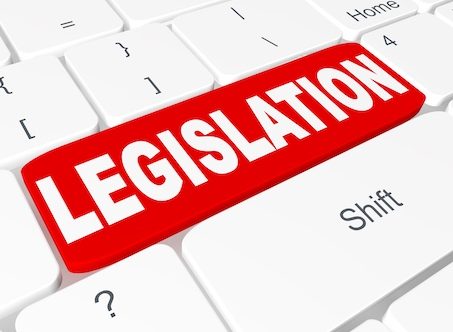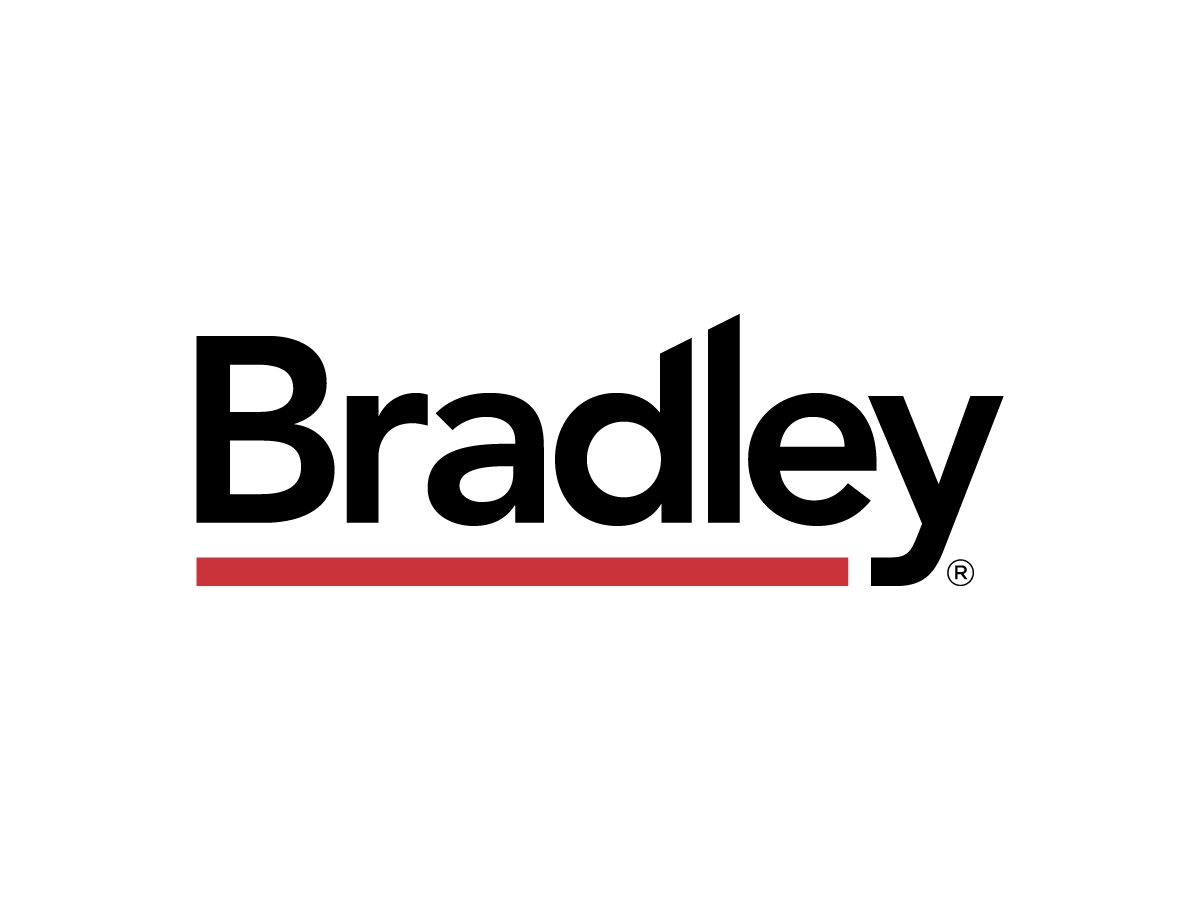IP Legislation of 2023 That Will Affect Your 2024
“The legislative activity relating to intellectual property issues in 2023 has been marked with proposals touching on a list of far-ranging issues, from technology to healthcare and from Patent Office administrative issues to using the patent system for geopolitical purposes.”
Throughout 2023, a number of legislative initiatives impacting intellectual property rights were introduced in the United States Congress or signed into law by the President. In some instances, these efforts are meant to try and re-balance the various, sometimes competing, interests of the public and the innovators. In other instances, the legislation is aimed at weaponizing the intellectual property right procurement process to reward some and punish others. Various pieces of legislation as well as Executive Directives directed at artificial intelligence also have been introduced at different levels. This piece, however, leaves those AI issues for others to address. Below is a summary of some of the key legislative efforts in 2023 touching on U.S. IP rights.
I. PREVAIL Act
The PREVAIL Act seeks to revise certain procedures at the Patent Trial and Appeal Board (PTAB). Established through the 2011 America Invents Act, the pros and cons of the PTAB have been the subject of much debate – from some suggesting it too easily serves to eliminate property rights to others asserting that it rightfully provides a “faster and cheaper” method for challenging patents.Overall, the re-balancing measures proposed in the PREVAIL Act seem geared to make it more difficult for petitioners to successfully challenge patents, while also making the process less costly and more certain.
The PREVAIL Act would require:
- “challengers to have been sued or threatened with a patent infringement lawsuit before filing a PTAB challenge” and “prohibiting any entity financially contributing to a PTAB challenge from bringing its own challenge;”
- “a party to raise all arguments in one challenge” and applying “estoppel at the time the challenge is filed, rather than after a PTAB final written decision;”
- “the PTAB to find a patent invalid by ‘clear and convincing’ evidence” and “interpret claims using the same ‘plain and ordinary meaning’ standard used in federal district court;” and
- “a party to choose between making its validity challenges before the PTAB or in another forum, such as federal court” (thereby preventing “duplicative patent challenges”)..
Patent Eligibility Restoration Act
The Patent Eligibility Restoration Act (PERA) of 2023 seeks to provide better clarity over patent subject matter eligibility under Section 101 of the Patent Act. This bill seeks to meet this goal by eliminating the judicially created exceptions to patent eligibility and providing clearer guidance on determining patent eligibility. The Supreme Court has interpreted Section 101 of the Patent Act to exclude subject matter from being patented if it is natural phenomena, a law of nature, or an abstract idea. Alice Corp. v. CLS Bank International, 573 U.S. 208 (2014). These U.S. judicial exceptions are different from some of the rules around the world, and thus, can lead to innovators not being able to patent in the United States what they can patent in other jurisdictions. These exceptions also have come under fire as limiting or hindering the development of leading-edge technologies, especially in today’s digital and data-driven industries.
To address these issues, PERA states, “Any invention or discovery that can be claimed as a useful process, machine, manufacture, or composition of matter, or any useful improvement thereof, is eligible for patent protection,” except what is explicitly provided in amended 35 U.S.C. § 101. It goes on to state, “The term ‘useful’ means . . . that the invention or discovery has a specific and practical utility from the perspective of a person of ordinary skill in the art to which the invention or discovery pertains.”
PERA’s limited set of exceptions to patent eligibility is:
- “[a] mathematical formula that is not part of an invention”
- “a process that is substantially economic, financial, business, social, cultural, or artistic”
- “[a] process that ‘(i) is a mental process performed solely in the human mind’; or ‘(ii) occurs in nature wholly independent of, and prior to, any human activity’”
- “[an] unmodified human gene, as that gene exists in the human body”
- “[an] unmodified natural material, as that material exists in the nature.”
PERA also seeks to provide better clarity on the patentability of computer-related inventions. It states, “any process that cannot be practically performed without the use of a machine (including a computer) or manufacture shall be eligible for patent coverage.” There are exceptions, however. A “process that is substantially economic, financial, business, social, cultural, or artistic” is not patent eligible, “even though not less than 1 step in the process refers to a machine or manufacture.” Furthermore, “process claims drawn solely to the steps undertaken by human beings in methods of doing business, performing dance moves, offering marriage proposals, and the like shall not be eligible for patent coverage, and adding a non-essential reference to a computer by merely stating, for example, ‘do it on a computer’ shall not establish [patent] eligibility.”
Finally, PERA provides guidance as to how courts should determine whether eligible subject matter is being claimed. It states that patent “eligibility shall be determined . . . by considering the claimed invention as a whole and without discounting or disregarding any claim elements” and without regard to: 1) “the manner in which the claimed invention was made;” 2) “whether a claim element is known, conventional, routine, or naturally occurring;” 3) “the state of the applicable art, as of the date on which the claimed invention is invented;” or 4) “any other consideration in section 102, 103, or 112.”
III. Protecting American Intellectual Property Act of 2022
In an effort to step up U.S. enforcement of U.S. intellectual property rights, most notably trade secret rights, against foreign actors (most notably, China, Russia, North Korea, and Iran), President Biden signed on January 5, 2023, the Protecting American Intellectual Property Act of 2022 (PAIPA).
PAIPA requires the President to impose sanctions on any foreign person that the President identifies in required periodic reports to Congress as having knowingly engaged in or benefited from significant theft of trade secrets of U.S. persons if the theft “is reasonably likely to result in, or has materially contributed to, a significant threat to the national security, foreign policy, or economic health or financial stability of the United States;” or “has provided significant financial, material, or technological support for, or goods or services in support of, … such theft.” The President also is authorized to identify entities that are owned or controlled by, or act on behalf of, directly or indirectly, foreign persons engaged in prohibited trade secret theft activities.
PAIPA provides that the President shall impose five or more of a wide range of sanctions on any foreign entity that has been included in the most recent report to Congress. Some of those sanctions include:
- Block and prohibit all transactions in property and interests in property of the entity that are in the United States, come within the United States, or are or come within the possession or control of a United States person;
- Direct each U.S. executive director to an international financial institution to vote against any loan from the financial institution that would benefit the entity;
- Prohibit transactions in foreign exchange that are subject to U.S. jurisdiction and in which the entity has interest;
- Prohibit transfers of credit or payments by, through, or to a financial institution that involve an interest of the entity, to the extent that such transfers or payments are subject to U.S. jurisdiction and involve an interest of the entity;
- Direct the Secretary of State and Secretary of Homeland Security to deny a visa to and exclude from the U.S. any foreign corporate officer or principal of or shareholder with a controlling interest in the entity;
In the case of a foreign individual identified in the President’s most recent report to Congress, PAIPA provides that the President shall apply all of the following sanctions:
- Block and prohibit all transactions in property and interests in property if they are in or come within the U.S. or are or come within the possession or control of a U.S. person;
- Block the person from entering the U.S.;
- Deny a visa or other documents to enter the U.S. and any other benefit from the Immigration and Nationality Act; and
- Revoke any current U.S. visa previously granted.
Violations of the Act include civil penalties, including not to exceed the greater of $250,000.00 or twice the amount of the transaction violating the Act. Criminal penalties include prison time of up to 20 years, fines of up to $1 million, or both.
IV. Prohibiting Adversarial Patents Act
Introduced on September 14, 2023 by U.S. Rep. Scott Fitzgerald (WI-05), along with Reps. Mike Gallagher (WI-08), Darrell Issa (CA-48) and Blaine Luetkemeyer (MO-03), the Prohibiting Adversarial Patents Act prohibits the issuance of a U.S. patent to any person or entity who is identified to be a threat to U.S. national security pursuant to the U.S. Entity List, the Non-SDN CMIC List, the 1260H List, or the FCC’s Section 2 List.
Any patent previously issued to companies on these lists would be unenforceable. This bill would also require disclosure of ties to a state-sponsored entity during application for patent, including any state-affiliated research funds or talent recruitment programs associated with the applicant.
V. Advancing America’s Interests Act
On May 18, 2023, Representatives David Schweikert (R-AZ) and Don Beyer (D-VA) co-sponsored and reintroduced the “Advancing America’s Interests Act” (AAIA)1 in an effort to better protect the U.S. economy and jobs and minimize the improper use of the International Trade Commission’s powers by those they may not have been created to protect.
The International Trade Commission (ITC) was established to protect U.S. industry from unfair foreign competition. Recently, the ITC has been used by licensing and foreign companies as a forum to file patent cases against American companies. The impact can be costly litigation that runs the risk of American companies being unable to import their products in from the countries where they have those products manufactured.
The AAIA seeks to address these identified issues in a number of ways. First, it seeks to tie the “Domestic Industry” standard based on patent licensing activity to the adoption and development of products that actually incorporate the patent. Second, the AAIA would eliminate the ability of a complainant to subpoena an unwilling company in order to meet the domestic industry standard requirement. Third, the bill would require the ITC to affirmatively determine that an exclusion order serves the public interest. Fourth, the AAIA would codify a pilot program the ITC has been using to address certain dispositive issues early, including the domestic industry requirements. The AAIA would allow the ITC to identify such issues and make a ruling within 100 days.
VI. The Medication Affordability and Patent Integrity Act
On September 13, 2023, Sen. Maggie Hassan, D-N.H., joined by Sen. Mike Braun, R-Ind., introduced a bill designed to require pharmaceutical drug and biological product manufacturers to provide additional and consistent information to both the Food and Drug Administration (FDA) and U.S. Patent and Trademark Office (USPTO) for newly submitted or approved drug applications. According to the sponsors, drug manufacturers are supposedly “able to unfairly extend the exclusivity period for a drug by submitting partial information for their initial patent, in order to help secure subsequent patents down the road” due to “incomplete coordination” between the FDA and PTO. The Medication Affordability and Patent Integrity Act seeks to close those gaps in information with the goals of lowering prescription drug costs.
If enacted, this Act would require the sponsor of any application submitted or approved under the FDA or Public Health Strategy & Analysis (PHSA) to certify to the FDA and USPTO that information submitted to each agency is consistent with information submitted to the other, and submit to the USPTO any information “material to patentability” of “applicable patents” that it submitted to the FDA as part of its drug application or subsequent communications with the FDA. The Act also sets out a new defense to patent infringement based on the patentee’s “negligent” or “intentional” failure to disclose the required information under this Act. The Act seeks to apply to any original drug application submitted on or after the proposed Act is enacted and any “applicable patent” issued on or after enactment. For patents that have already issued, the Act would apply to any FDA submissions and communications made regarding those patents after the Act is enacted.
What to Expect
The legislative activity relating to intellectual property issues in 2023 has been marked with proposals touching on a list of far-ranging issues, from technology to healthcare and from Patent Office administrative issues to using the patent system for geopolitical purposes. Given the political climate, it is not implausible to see movement in 2024 on the proposed Prohibiting Adversarial Patents Act and the Advancing America’s Interests Act as well as much follow through with the mandates set out in the Protecting American Intellectual Property Act of 2022. Though separate from, but still related to, the geopolitical issues, it also should be expected that progress on passing a version of the Patent Eligibility and Restoration Act in 2024 will be made.






